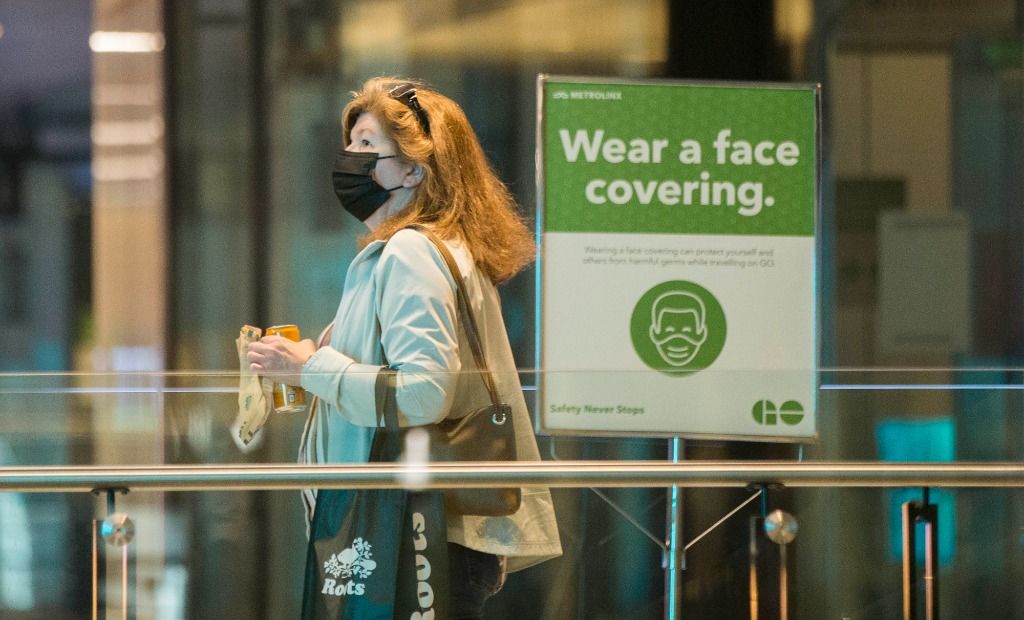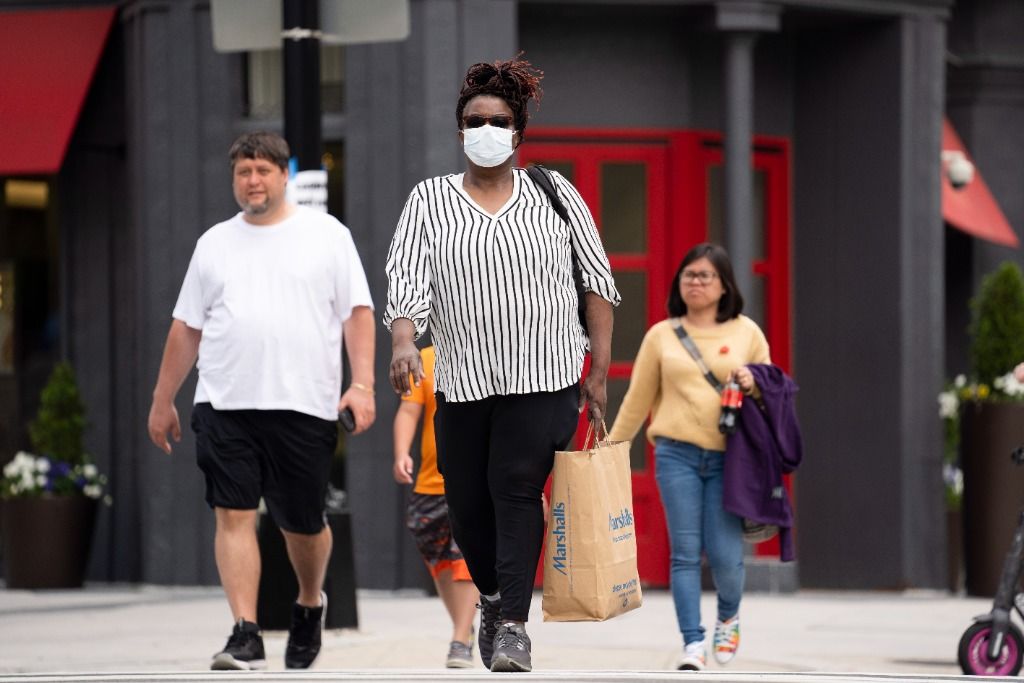Xinhua News Agency, Beijing, May 31. An expert from the World Health Organization said on May 30 that although hundreds of monkeypox cases have been reported worldwide so far, she does not think it will turn into another pandemic. However, there are still many unknowns about this disease, and measures need to be taken quickly to control the spread of the virus.
Rosamund Lewis, director of the WHO’s Health Emergencies Programme Smallpox Secretariat, said at a public meeting that day: “At the moment, we are not worried about a (monkeypox) global pandemic. What we are worried about is If individuals do not have the information they need to protect themselves, they may be exposed to the virus through high-risk exposure.”
She warned that anyone is at potential risk of contracting monkeypox. It is not known whether there is asymptomatic transmission of monkeypox, or whether the disease may be airborne.

On May 11, at a station in Toronto, Canada, a woman wearing a mask reminded people to wear a mask. Walk past the sign for masks. Published by Xinhua News Agency (Photo by Zou Zheng)
Monkeypox and smallpox belong to the genus Orthopoxvirus. WHO data shows that the smallpox vaccine is 85% effective against monkeypox virus. However, some scientists believe that declining immunity to monkeypox since the WHO declared smallpox eradication in 1980 is one of the reasons why monkeypox infections have increased in the past few decades.
Lewis said it was uncertain how much immunity people who had previously been vaccinated against smallpox had, since it has been at least 40 years. She said the WHO’s top priority is to stop the spread of monkeypox before it “takes root” in new areas.
She stressed the need to raise awareness among at-risk groups, detect cases as early as possible, isolate infected people and trace their close contacts.
“If we can all respond quickly and work together, we will be able to stop this,” Lewis predicts. “We will be able to stop monkeypox before it spreads to more vulnerable populations and before it replaces smallpox. .”

On May 11, in Washington, the capital of the United States, a pedestrian walked by with a shopping bag street. Photo by Xinhua News Agency reporter Liu Jie
Monkeypox is a viral zoonotic disease that is mainly prevalent in western and central Africa, and is not prone to human-to-human transmission. However, contact with the broken skin, body fluids, and droplets of an infected person may lead to infection. The initial symptoms of infection include fever, headache, muscle aches, back pain, and swollen lymph nodes, which can later develop into a widespread rash on the face and body. Most infected people recover within a few weeks, while others become seriously ill and even die.
The monkeypox epidemic rarely occurred outside the African continent before, but since May this year, more than 200 non-monkeypox-endemic countries around the world have successively reported more than 200 confirmed cases and more than 100 suspected cases of monkeypox. , the United Kingdom, Spain, Portugal and other European countries have more cases.
A total of 179 cases of monkeypox infection have been confirmed in the UK. The UK Health Security Agency, Public Health Scotland, Public Health Wales and Northern Ireland Public Health Agency jointly issued guidelines on the 30th, recommending that people who may or have been diagnosed with monkeypox should avoid contact with other people and avoid sexual activity when they develop symptoms; Make sure to cover the lesions and wear a mask when going out for medical treatment, and avoid taking public transportation as much as possible; if the patient is in good health, they can be isolated at home under the conditions of following the new recommendations and under the supervision of the health department; those who have been in contact with monkeypox patients will also be Undergo a risk assessment and, if necessary, isolate for 21 days. (Liu Xi)